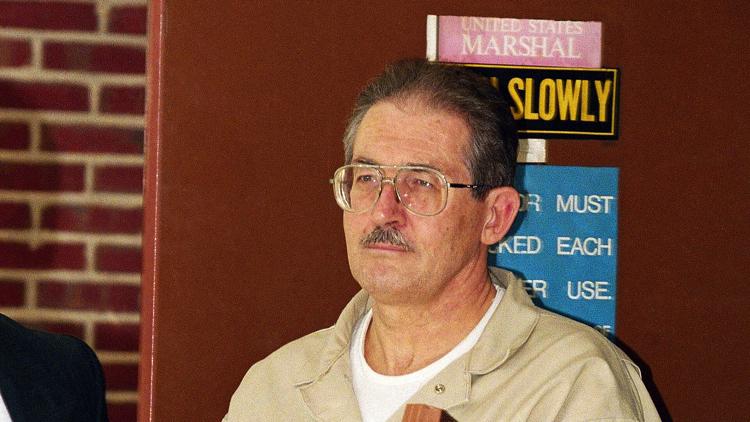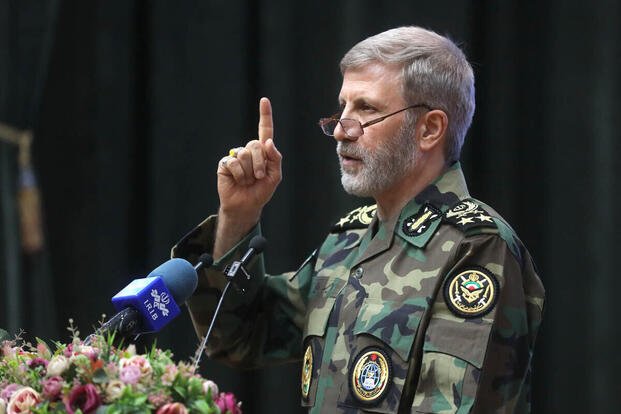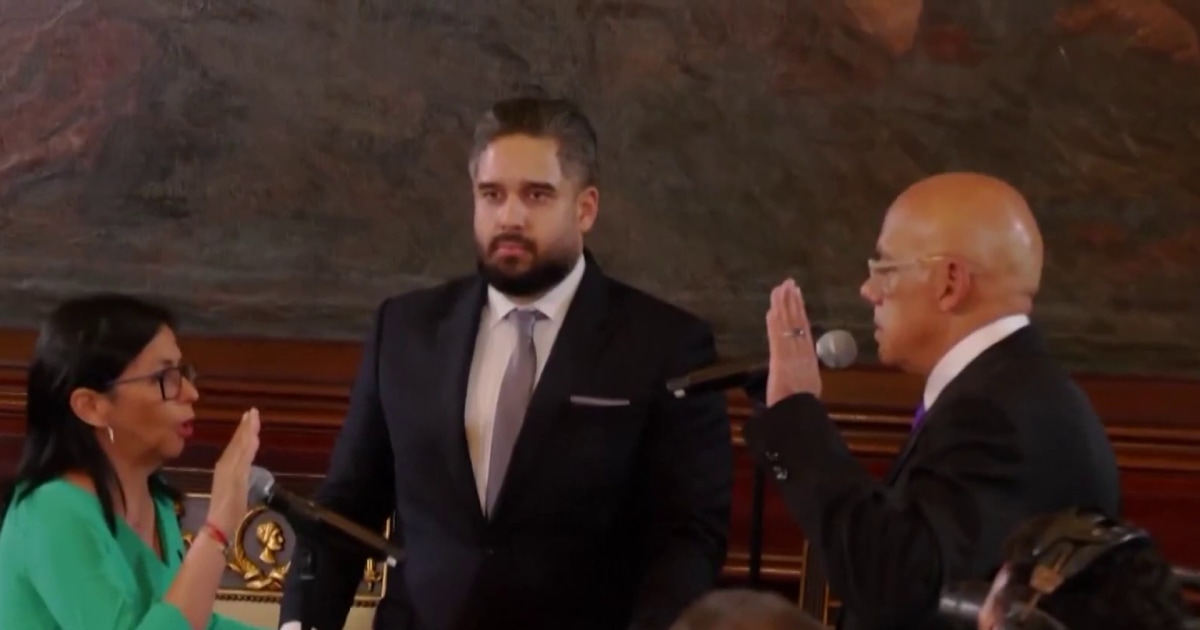2026-01-04
New Jersey man went from business partner to murder suspect accused of killing 4, torching 2 houses
Jury selection is scheduled to begin Monday in the long-awaited trial of a New Jersey man accused of killing four relatives in a murder and arson plot after his younger brother uncovered a web of financial deceit.Paul Caneiro, 59, will stand trial in a Monmouth County courtroom on more than a dozen counts of murder, aggravated arson, theft and other crimes linked to the killing of his younger brother Keith Caneiro and his family on Nov. 20, 2018. If he is convicted, he faces a maximum sentence of life without the possibility of parole on just the murder charge. The trial is expected to last several weeks.Caneiro is accused of torching his brother’s home and his own to create an “illusion” that the entire Caneiro family was being targeted, former Monmouth County Prosecutor Christopher J. Gramiccioni has said.“This is one of the most brutal cases that I’ve seen in my experience here,” he said at a news conference at the time.In a statement, Caneiro’s defense team said their client maintains his innocence and has waited more than seven years to “to have a full and fair trial where the evidence will be heard and evaluated in a court of law. Despite this lengthy process, Mr. Caneiro remains patient and resolute as well as deeply grateful for the unwavering support of his close family and friends who continue to stand by him.”Back-to-back blazesThe first element of the “illusion” described by Gramiccioni was a predawn house fire at Paul Caneiro’s home in Ocean Township, a wealthy coastal enclave south of New York City. Responding to a report of smoke at the home at 5:01 a.m., emergency personnel found parts of the house in flames. They discovered a red gas can in the driveway, according to an affidavit in support of an arrest warrant, and a charred glove on the ground.Paul Caneiro, his wife and two adult daughters escaped the blaze and parked nearby in a Porsche SUV, according to the affidavit. His wife told authorities that she didn’t know of anyone who would want to harm her family.A little over seven hours later, authorities responded to a report of another fire, this time at the nearby home of Caneiro’s brother and business partner, Keith, 50. Officers found his body in the front yard. He’d been shot once in the back and four times in the head, according to another affidavit.The affidavit paints a horrific picture of what firefighters found in Keith’s home. On the kitchen floor, 11-year-old Jesse was found dead from multiple stab wounds. Keith’s 8-year-old daughter, Sophia, was on the landing of a staircase. She’d also been fatally stabbed. Autopsies cited smoke inhalation as a contributing factor in their deaths.Keith’s wife, Jennifer, 45, was on another set of stairs. She’d been shot once in the head and stabbed in the torso. Paul was arrested three days later on charges of aggravated arson in connection with the blaze at his own home. He was charged with the killings shortly afterward and later indicted in connection with those crimes and others, including the theft of $75,000 from his brother and sister-in-law, a copy of the indictment shows.At a news conference, Gramiccioni said investigators had uncovered a likely motive for the killings: money.Financial and family turmoilA barrage of lawsuits filed against Paul in the years after his arrest offered a window into the financial and familial turmoil that preceded Nov. 20. The brothers had long been involved in two companies together — a pest control business that they took over in 2011 and an IT consulting firm that Keith started decades before. According to a lawsuit Jennifer’s family filed in 2021, Paul was seriously injured in a car accident in 2012, which prompted a shift in his personality and demeanor. According to the suit, which accuses Paul of breach of fiduciary duty and makes other allegations, Keith and Jennifer wondered whether he’d developed an addiction to pain medication. (In a filing, Paul neither admitted nor denied the claim.) In the months before Nov. 20, Keith discovered “numerous” instances of Paul stealing from their businesses and from him personally, according to the suit. A review of business records found that he was misappropriating roughly $11,000 per month for personal use and claiming the charges as an insurance reimbursement, according to the suit.Keith began the process of removing Paul as a beneficiary from a family trust, according to the suit, and made it known that he planned to end the business partnership. “Among other things, he was trying to sell the businesses (which Paul objected to) and was looking for job opportunities away from Paul,” the lawsuit says.On Nov. 17, 2018 — three days before the killings — Keith told the children’s grandfather Vlassis Karidis that Paul stole $90,000 that had been set aside for his kids’ college tuition, according to the suit. On the same day, Keith told Karidis that he was cutting off his brother’s $225,000 annual salary, the suit says. In a filing, Paul wrote that he couldn’t comment on the allegations of financial crimes because they were relevant to his criminal case.Allegations of familial maneuvering continued after the killings. The lawsuit alleges that after Paul was arrested on the first arson charge, the third and youngest Caneiro brother, Corey, acted “in concert” with Paul to help install himself as trustee on Keith’s family trust — even though the suit says Keith made it clear that he didn’t want Corey to serve in that role.Shortly afterward, the suit says, “Corey took secretive and unilateral control” of the life insurance proceeds paid out to the trust. Less than a year later, the suit says, Corey used those proceeds to buy a $1.8 million home in one of the state’s wealthiest communities, Fair Haven.A lawyer for Corey, who is named as a defendant in the lawsuit, didn’t respond to a request for comment. Corey denied the allegations in a filing.The lawsuit, which seeks unspecified damages, is ongoing. Legal challengesAs the criminal case against Paul meandered through a series of pretrial court hearings, his lawyers sought to bar prosecutors from introducing evidence that they believe implicates him in the events of Nov. 20.At a lengthy hearing in 2024, they argued that a powerful and increasingly common tool used to identify DNA in the case hadn’t been properly vetted. And in legal filings last year, they sought to exclude electronic evidence from trial that they said police obtained without the warrant they needed. Monmouth County Judge Marc Lemieux rejected their claims about the DNA tool, STRmix, but agreed with the defense on one point — that authorities improperly seized Paul’s home security system.In a ruling in June, Lemieux wrote that the evidence would be off-limits because authorities didn’t first obtain a warrant before they searched Paul’s garage, where he kept the system.According to the prosecution, evidence obtained from the system helped establish Paul’s movements in the hours before the killings.He told investigators that he believed he’d turned the system off the day before because it caused his Wi-Fi to run slow, according to the affidavit. But when authorities examined the system, they found that it was hard-wired — not connected to a wireless network — and the cameras showed Paul walking into the garage at 1:29 a.m., a couple of hours before Keith’s neighbors described hearing what sounded like a series of gunshots, the affidavit says.One of the cameras showed Paul walking toward the system, according to the affidavit. Then, at 1:30 a.m., the cameras stopped recording. The decision blocking that evidence was appealed to the state’s high court, which overruled the lower courts last month and found that police were justified in seizing the evidence without a warrant.




































































